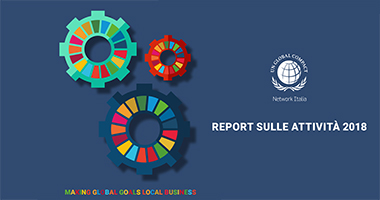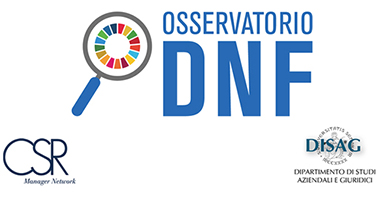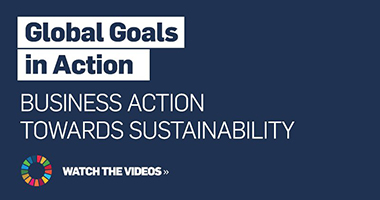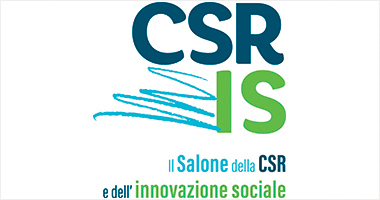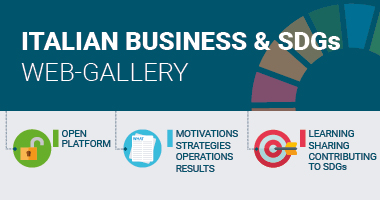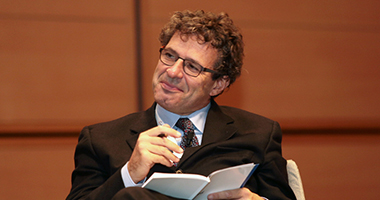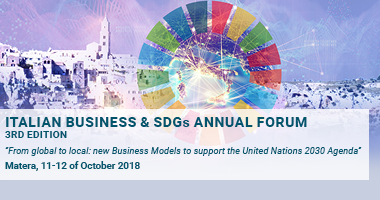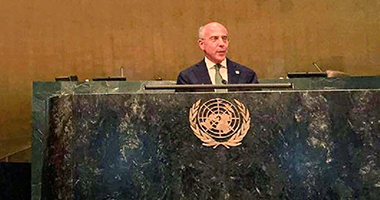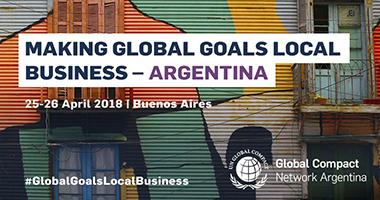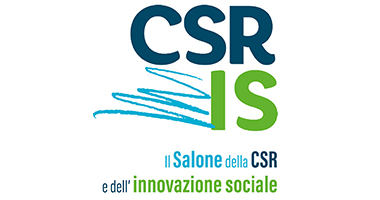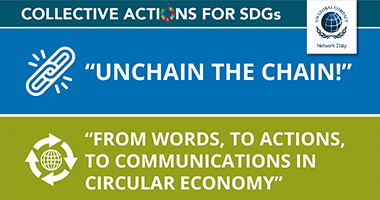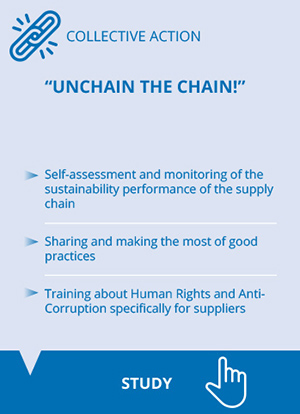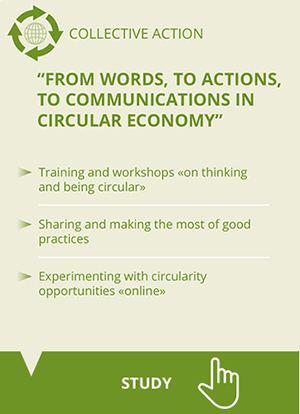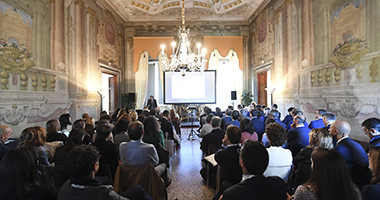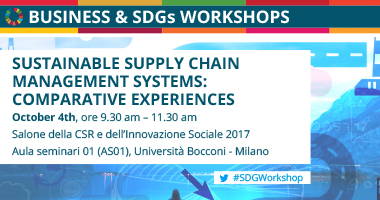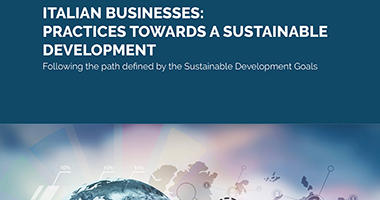Since 2015, launch year of the Global Agenda for Sustainable Development, the United Nations Global Compact (UNGC) has integrated the 17 Global Goals (SDGs) into its mission and vision. The Making Global Goals Local Business campaign of the Global Compact aims to promote SDGs on a global scale through in-depth activities, release of information and support carried out at the local level and addressed to UNGC member companies and organizations.
In this context and with the aim of enhancing its commitment to sustainable development, each year the UNGC identifies and celebrates a group of SDGs Pioneers – individuals employed in the private sector who are distinguished by exceptional commitment and leadership shown to the advancement of the Global Goals.
» DISCOVER THE SDG PIONEERS 2018
This year, Global Compact has decided to do more, promoting the SDGs Pioneers Local Round for the first time, which will precede the SDGs Pioneers Global Round and will be managed in collaboration with the Global Compact Local Networks.
The objective of the Local Round | Italy will be to recognize one Young Professional (35 and under) employed at any level in a company participating (directly or as Subsidiary) in the UN Global Compact and engaged daily in the advancement of the 2030 Global Goals.
More specifically, candidates for the title of SDGs Pioneer | Italy must work in companies which:
- Have already defined their UN Global Compact Engagement Tier - Signatory or Participant
- Have submitted at least one COP – Communication on Progress to the UNGC
- Have joined the UN Global Compact before September 30, 2018 (Subsidiary companies will be accepted if their Parent Company complies with this requirement)
SDG PIONEERS LOCAL ROUND | ITALY - TIMELINE
» February 1, 2019: launch of the initiative
» February 1 – April 15: collection of nominations
» May 17, 2019: The celebration event of the SDGs Pioneer | Italy will be held in Milan and hosted by FEEM - Fondazione Eni Enrico Mattei.
Each national SDGs Pioneer will directly access the Global Round (June–September).
The SDGs Pioneers 2019 will be announced and celebrated during the UNGC’s Leaders’ Summit 2019 (New York, September 2019).
Taking part in the SDGs Pioneers 2019 campaign is an opportunity to:
» recognize the professionalism and the work done in support of the 2030 Agenda by a Young Professional inside their company, showing outside how an under-35 resource can decisively contribute to steer business models towards sensitivity and rationale for environmental, social, as well as economic challenges;
» increase the visibility of the company’s and its leaders’ commitment regarding sustainable development issues, understood as enabling condition for the Young Professional to operate as an “agent of change”.
» meet the international community active in the advancement of Global Goals and access – with a leading role – one of the most important flagship events promoted by UN Global Compact: the Leaders’ Summit 2019.
NOMINATE YOURSELF AS “SDGs PIONEER | ITALY” » NOMINATE SOMEONE YOU KNOW » SDGs PIONEERS LOCAL ROUND - FAQ »
CONTACTS
For further information on the initiative, please contact:
Margherita Macellari - Project Manager, This email address is being protected from spambots. You need JavaScript enabled to view it.
Laura Capolongo - Admin, This email address is being protected from spambots. You need JavaScript enabled to view it.

